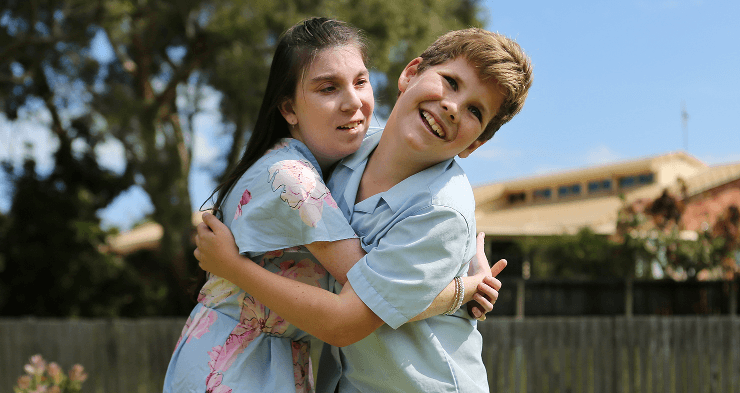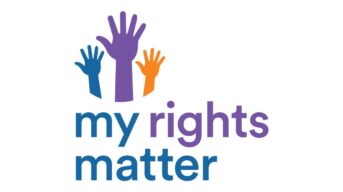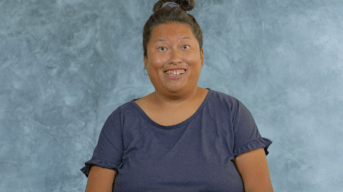
NDIA stance on swallowing support leaves people in danger
Council for Intellectual Disability is alarmed that the National Disability Insurance Agency says it will not fund therapists to prepare eating and drinking plans for people with swallowing problems. By Jim Simpson, Senior Advocate, Council for Intellectual Disability.
Many people with intellectual and physical disability find it difficult to swallow as a result of their disabilities. This can make it difficult for a person to get adequate nutrition and create risks of the person choking or becoming ill with pneumonia. There is a danger of death and in the past many people with intellectual disability died due to unsafe swallowing.
According to the NSW Ombudsman, over the 15 years to 2017, 65 percent of disability services residents who died had swallowing difficulties. The report concludes:
“Our reviews over the past 15 years have shown that dysphagia has significant and often fatal implications for the health of people with disability. It is critical that people with disability in residential care and elsewhere have timely access to skilled speech pathologists to obtain an accurate assessment of their swallowing function and clear recommendations [as to action]”. (Ombudsman’s Report of Reviewable Deaths 2014-2017)
It also is common for a person with a swallowing problem to be excluded from day to day activities. Sometimes this is due to discomfort or poor health, sometimes it is practical – especially when there are feeding tubes involved. A comprehensive eating and drinking plan that has been completed by professionals who have skills and experience in the complexities of disability can make all the difference.
Council for Intellectual Disability (CID) has taken a lead role in advocating for safe eating practices, and Ageing Disability and Home Care (ADHC) NSW did a lot of work to improve practice.
A change in policy leaves people without support
Speech pathologists in particular have a vital role to play in assessing a swallowing problem and developing an eating and drinking plan to help the person get adequate nutrition in a safe way.
Around Australia, every State Government disability department provided speech pathologists to do this work, a function that was picked up by the National Disability Insurance Agency (NDIA).
But now the NDIA says that it will only fund a speech pathologist to educate people on how to implement an eating and drinking plan.
The NDIA says it will not fund the speech pathologist to assess the swallowing problem and develop the plan. It claims that this work is about preventing a health problem and therefore the responsibility of the health system.
CID says that the NDIA is mistaken here.
The principles that determine the responsibilities of the National Disability Insurance Scheme (NDIS) and health services say:
“The NDIS will be responsible for supports required due to the impact of a person’s impairments on their functional capacity and their ability to undertake activities of daily living.”
The NDIS is responsible for:
“Allied health and other therapy directly related to maintaining or managing a person’s functional capacity including… speech pathology.”
CID says that the development of an eating and drinking plan falls within the NDIS responsibilities under these principles. The person’s functional capacity to swallow is impaired so that the person is unable to safely undertake an activity of daily living – safely eating a meal and having a drink. This is equivalent to the support needed by a person who does not recognise the danger of traffic when crossing the road.
There are also big practical problems with the NDIA position. NSW has given the NDIA all of the funding that it used to pay for disability speech pathologists and other professionals. The NDIA cannot suddenly expect the health system to provide this capacity. Around Australia, the role of the health system has been very limited, for example assisting when a person is in hospital or needs a specific medical test. The health system does not have the capacity and the expertise that people with disability need.
What’s the solution?
CID calls on the NDIA to immediately resume the funding of full speech pathology supports for people with swallowing problems.
CID also emphasises that assessment of a swallowing problem and development of an eating and drinking plan is a team effort, starting with the person with the disability and including their informal and formal supports. Input may be needed from a range of professionals including a dietician and a behaviour support practitioner.
All of these inputs need to be funded by the National Disability Insurance Scheme. This is the only way to ensure that a holistic and coordinated eating and drinking plan is developed that maximises a person’s ability to engage in the life of their choosing.
Take action
Disability Reform Council, which includes all the disability ministers and treasurers from around Australia, will soon consider the demarcations of responsibility between the NDIS and the health system. We urge the new Australian Families and Social Services Minister Paul Fletcher to accept that the NDIS is responsible for swallowing therapy. Find out how you can take action by visiting our Hard to Swallow campaign page.



 1800 424 065
1800 424 065 














